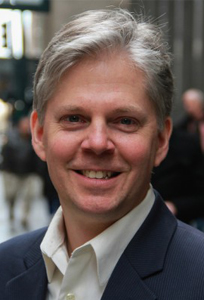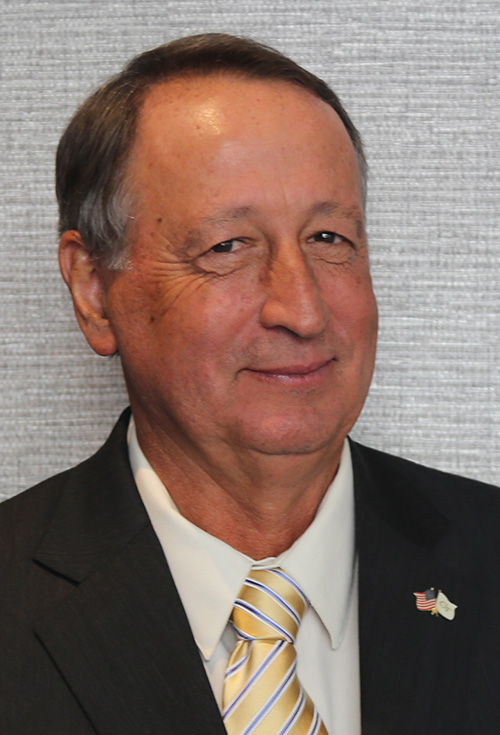
 Anderson |
 Evans |
 Garcia |
If you’d asked Jim Anderson 30 years ago what he’d be doing today, he might’ve said something involving construction or design.
“One of the things that I had always loved, even as a kid, is I would walk by construction sites and look at the big, yellow iron digging holes in the ground and those kinds of things — I always really loved the tangible nature of construction,” Anderson says.
What he likely wouldn’t have predicted is that he’d be running a social media company and helping major media organizations share and monetize their content. Yet that’s what he’s doing, nearly three decades after earning two civil engineering degrees from Georgia Tech, including a master’s focused on geotechnical engineering.
“At first, it was remediation projects … but it all was tied back to soil and geotech. Then, over time, I ended up being exposed to other areas of environmental, including air permitting,” said Anderson, who finished his bachelor's in 1988 and his master's in '89. “Air emissions from factories had very little to do with geotechnical engineering, but they were sort of adjacent to what I was doing. That’s a good example of what’s happened throughout my career, is before you know it, you take a lot of those adjacent leaps and you end up in the world of social media.”
That’s the thing — a civil or environmental engineering degree from Tech can prepare students for all kinds of jobs that design and build our communities, protect the environment, and make people’s lives better. But it can also lead to interesting and unexpected places.
The latest Field Notes podcast from the School of Civil and Environmental Engineering gathers a small sample of some of those stories, including from Anderson, now the CEO of a firm called SocialFlow.
The podcast also features Andrea Hence Evans, an intellectual property attorney in the Washington, D.C., area. She said she wanted to practice environmental law and become an activist, and she knew an engineering background would be valuable. When her law professors encouraged her to look into patent law, she was hooked. The 1999 Tech grad said she uses her technical skills every day.
“My target audience is, essentially, independent inventors … who are in their garages, tinkering with things. Some of them have great ideas, and you can’t ultimately patent an idea, so we have to talk to them about going from an idea to a real invention,” Evans said. “We never can really call the invention what it is, so I need to understand how things work. I need to understand good synonyms to be able to do proper [patent] searches.”
Evans also is a published author — her first book, All About Inventing: Everything You Need to Know About Patents From a Former USPTO Patent Examiner & Patent Attorney, came out earlier this year — and she appeared this fall on the PBS television show Make48.
“The show was literally taped in 48 hours. It was an incredible experience,” she said. “There were 12 teams, and on the spot, they give them a very broad topic, the clock starts, and they have to invent something [or] solve a problem, make a website and market it, pitch it, and even build a prototype.”
Her role was helping teams make sure their idea would be patentable, meaning she had to work through her entire research process multiple times over the course of two days.
“I do that every day,” she said, “but just not under those time constraints with cameras next to me.”
Rick Garcia came to Tech because his family had just moved to Atlanta, and it was the nearest university. He’d been flying planes in high school and thought being a commercial pilot sounded fun, but he knew he’d need a college degree and thought engineering would be a solid background. He started in aerospace engineering, but decided pretty quickly he wanted a broader perspective.
“I had grown up in my dad’s construction company, so I went over and visited the civil engineering department and thought it’d be a good fit,” Garcia said. “So I made the transfer, I think mostly ‘cause it would give me a more general engineering background. You know, there’s a big chance I wouldn’t make it as an airline pilot.”
Of course, Garcia never needed his backup plan after he graduated in 1973 — though he did use his civil engineering degree to develop some land over the years and build his own house. He ended up retiring from Delta and Singapore Airlines having accumulated some 30,000 flying hours in every big passenger jet you can think of.
He said he always felt like he could tackle anything after he finished his Georgia Tech degree.
